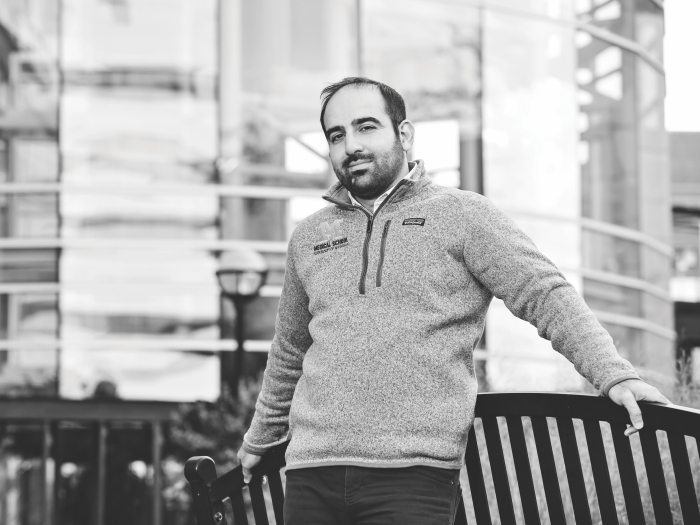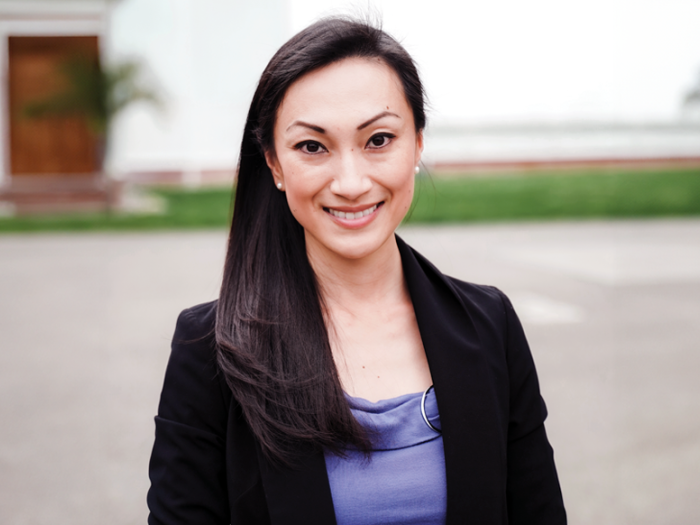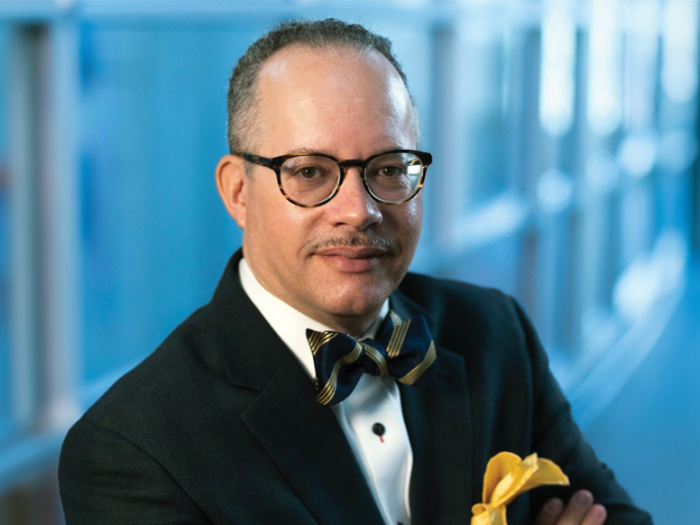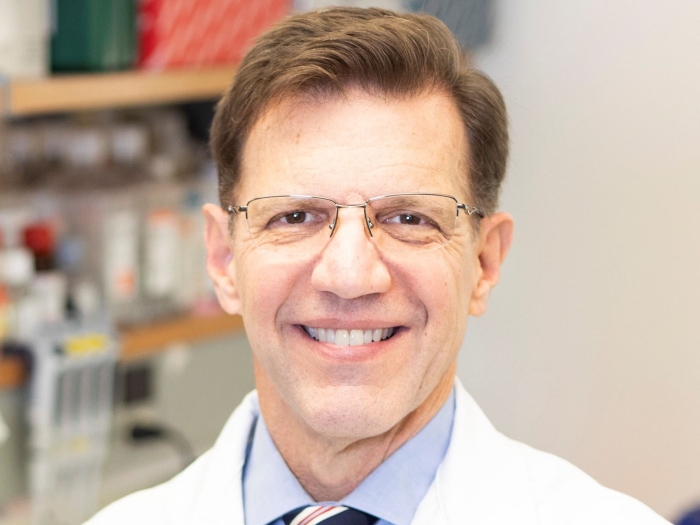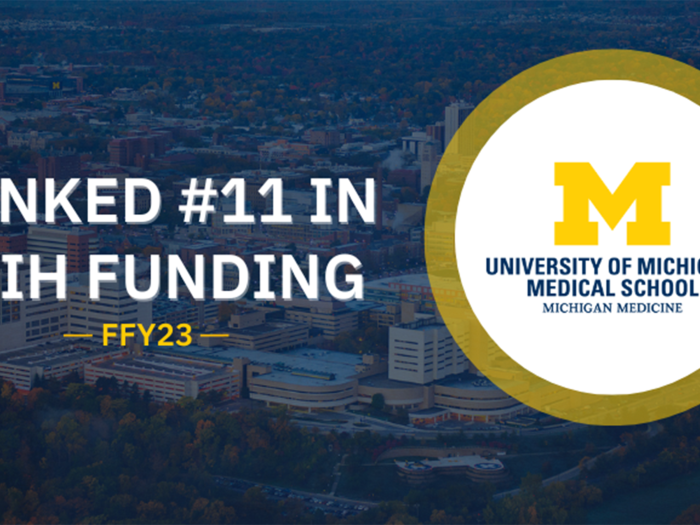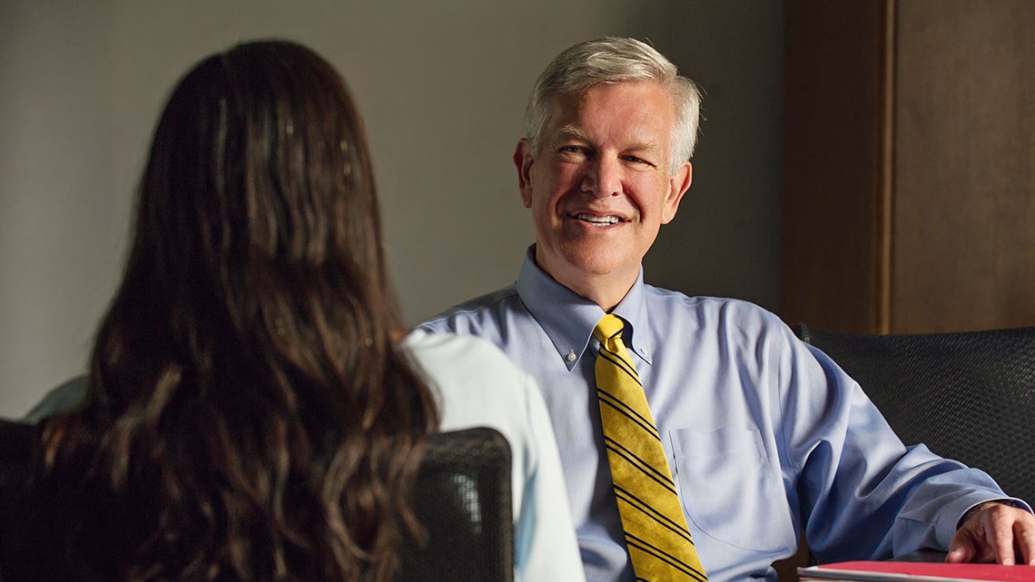
Dear Alumni and Friends,
Now, more so than ever, determining the best ways to deliver health care remains an ongoing debate in our country. While the discussion ensues, I firmly believe that, at Michigan Medicine, we need to continue pushing the boundaries that drive advances in health care and medicine.
One way we do this is through our commitment to basic and discovery sciences, which can lead to major, life-changing breakthroughs in health care. That's why I'm so pleased that we've filled a new position, executive vice dean for research and chief scientific officer, to guide our research and discovery science to new heights. Bishr Omary, M.D., Ph.D., was appointed to this role, effective May 2017, and will lead our research community to pursue greater achievements across the broad spectrum of research — from discovery science to clinical trials and implementation studies — and in funding, recruiting, and retention (read more).
For the past nine years, Dr. Omary has been chair of the Department of Molecular and Integrative Physiology in the Medical School. As chair, he led the development of multidisciplinary research programs that have produced important discoveries and elevated it to a top-rated physiology department in the country for NIH funding. Bishr also has been instrumental in creating more robust education programs for physiology graduate and post-doctoral students.
As a researcher himself, Dr. Omary clearly appreciates how discovery science has historically resulted in some of the greatest, most pivotal strides in medical advancements. One such example is the discovery of the Rous sarcoma virus (RSV) in 1911. Peyton Rous, a pathology instructor with no background in cancer, took over a colleague's cancer lab after joining the Rockefeller Institute. A woman came to his lab with a Plymouth Rock hen that had a large tumor on its breast. Rous produced a cell-free virus from the tumor, and learned that injecting this virus in healthy chickens reproduced the same tumors.
In subsequent decades, this research paved the way for the discovery of the first cancer-causing gene in humans and gave us early insights to the inner workings of human retroviruses like HIV.
A more recent example is the CRISPR/Cas9 system, a bacterial immune system that helps defend against invading viruses. CRISPRs consist of repeating sequences of genetic code that help cells mount an immune response against foreign DNA and RNA.
First described over 15 years ago, the CRISPR/Cas9 system was later discovered to be useful for deleting or adding genetic segments in yeast. In 2012, Feng Zhang, Ph.D., a bioengineer at MIT, reported the first successful programmable genetic editing of human cells using CRISPR/Cas9. Since then, the Zhang lab has trained thousands of researchers on CRISPR/Cas9 genome editing technology, which has enormous potential to accelerate life sciences research, improve biotechnology, and treat human disease.
Scientific discoveries that may begin with no specific end in mind — along with a healthy dose of serendipity or chance — can uncover unknown and never-suspected connections to human disease and, ultimately, medical treatment. With Dr. Omary as our chief scientific officer, I am confident that we will continue our commitment to discovery science, as it is a critical factor that gives rise to the innovation needed to achieve the best possible patient care, now and in the future.
Marschall S. Runge, M.D., Ph.D.
Dean, Medical School
Executive Vice President for Medical Affairs, U-M
CEO, Michigan Medicine
